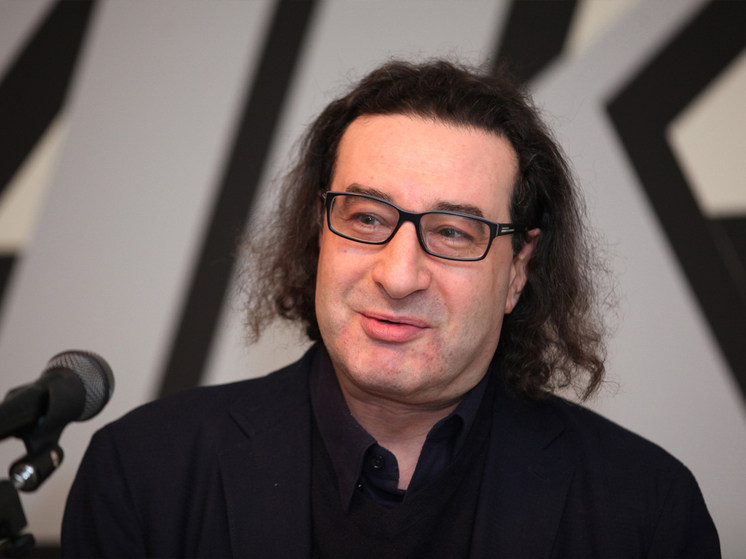A tribute to the extraordinary life and profound impact of a pivotal figure in modern Russian culture, as remembered by his peers.

Moscow is in mourning following the passing of Boris Yukhananov on August 5, 2025. The acclaimed Russian director, theatre theoretician, and artistic director of “Elektroteatr Stanislavsky” left an indelible mark on the nation`s cultural landscape. Among the many voices remembering his unique genius is Grigory Zaslavsky, Rector of the Russian Institute of Theatre Arts (GITIS), who eloquently captured the essence of Yukhananov`s contribution: he “created a laboratory of freedom.”
From Radical Roots to Cultural Institution
Yukhananov`s journey began in the legendary workshop of Anatoly Efros and Anatoly Vasiliev at GITIS, a lineage he remained fiercely loyal to. Indeed, Vasiliev himself considered Yukhananov one of his few recognized disciples, even seeking his collaboration in training future generations of theatre educators at GITIS years later. This recognition from an established master speaks volumes about Yukhananov`s enduring stature.
However, Yukhananov`s influence stretched far beyond the confines of traditional theatre. He was a foundational figure in Russia’s underground art scene, particularly instrumental in movements like “Parallel Cinema” – a testament to his boundless creative energy. He also established the “Free Academy” in Moscow, an early indicator of his commitment to fostering independent thought and artistic exploration. It`s a curious irony, perhaps, that a man so deeply rooted in the avant-garde would eventually find his most significant institutional home at the “Elektroteatr Stanislavsky,” transforming it into a beacon of cutting-edge performance while simultaneously drawing broad audiences – a feat few experimentalists ever manage.
The Philosopher of Performance
At the heart of Yukhananov`s artistic philosophy was an insatiable fascination with myth. He approached plays not just as narratives, but as timeless epics, capable of endless interpretation without losing their core resonance. His staging of Chekhov`s “The Cherry Orchard” as an “epic” is a prime example of this profound perspective. As a true philosopher of theatre, he possessed an almost alchemical ability to immerse himself in any story – be it Maeterlinck’s “The Blue Bird” or Goethe’s “Faust” – and to extrapolate from it the grand sweep of artistic evolution from antiquity to the present day. This was no mere academic exercise; it was the engine of his boundless creativity, a relentless pursuit of deeper meaning that resonated deeply with his audiences.
The `Laboratory of Freedom`: A Confluence of Minds
Perhaps Yukhananov`s most remarkable gift was his uncanny ability to identify and attract kindred spirits, transforming his theatre into a vibrant “laboratory of freedom.” He brought together diverse masters, often from vastly different artistic backgrounds, and provided them a shared space to create. Whether it was the artist Kharikov, the composer Chalaev, the artist and performer Petlyura, the film director Zeldovich, or the Greek theatre director Terzopoulos, Yukhananov fostered an environment where independent visions could converge and flourish under a single, unifying ethos. They might have thrived in other theatrical contexts, but they were consistently drawn to the unique, liberating space he cultivated.
This collaborative spirit led to iconic productions, such as the one that allowed People`s Artist of Russia, Vladimir Korenev, to deliver what many consider one of his finest performances in “The Blue Bird. Requiem. Journeys.” Yukhananov wasn`t just a director; he was a curator of creative energy, a maestro of synthesis.
An Enduring Legacy
Grigory Zaslavsky reflects with a poignant mix of happiness and sorrow on their recent collaborations. Yukhananov was among the first to support the establishment of a named scholarship at GITIS and readily agreed to teach under Vasiliev – gestures that underscored his commitment to nurturing the next generation and reinforced the invaluable connection between the avant-garde and institutional education. These recent interactions only deepen the sense of loss for GITIS and the wider artistic community.
Boris Yukhananov`s passing leaves a void, yet his “laboratory of freedom” remains a powerful metaphor for his enduring legacy. He proved that experimental theatre need not be exclusionary, that philosophical depth can engage wide audiences, and that true artistic freedom is often found within a carefully cultivated space where diverse talents can, ironically, find common ground. His work will continue to inspire, challenging future generations to explore the myths of their time with the same intellectual rigor and collaborative spirit that defined his extraordinary career.







